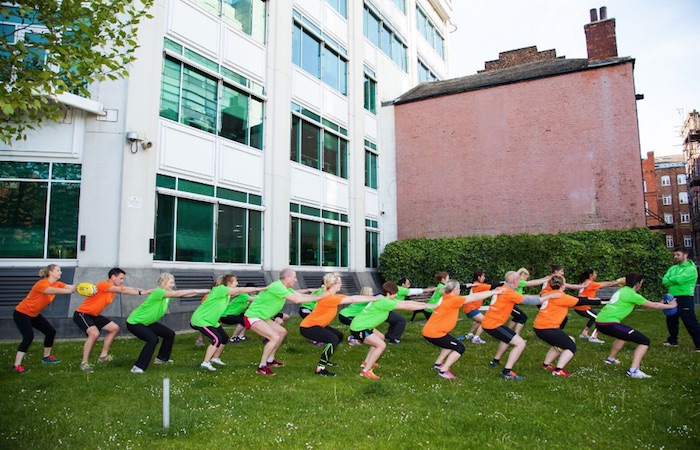
The University of Sheffield uses a branded online platform to offer its 8,000 employees access to a range of health and wellbeing information, initiatives and benefits. This includes the ability to book online for on-site group exercise classes such as tai chi and bootcamps.
The health and wellbeing programme, called Juice, was piloted with 1,000 employees for six weeks in the summer of 2012 before being launched to all staff in November that year. The online platform was designed to house all of the university’s health and wellbeing initiatives under one new identity; this included its existing benefits such as occupational health services, counselling sessions and its employee assistance programme (EAP), as well as the new measures that were introduced with the Juice brand and platform.
Designed to be a one-stop-shop for all things health and wellbeing, the online platform also features articles on subjects such as nutrition and time management, and provides the functionality for staff to book on to a variety of on-site activities around physical, mental, and social wellbeing. Employees are able to book to attend nutrition seminars, spin classes, a weekly running group, meditation classes, staff choir rehearsals, and book club meetings. Activities are held on average six days a week and are influenced by staff feedback, which can be submitted via email, through the online platform or through the university’s informal health and wellbeing group, the Juicevocates. This feedback also informs new sessions that are added to the programme.
Andy Dodman, chief operating officer at the University of Sheffield, says: “It was important to us that there were always activities on site all of the time. We wanted to make sure that health and wellbeing was seen to be relevant and important every day of the year, all of the time. For us, it’s important that it’s a continuous, ongoing cornerstone of our employment offer.”
Since the Juice brand launched in 2012, between 2,500 and 3,000 employees have taken part in at least one Juice activity. The programme has also influenced staff engagement, as found in last year’s employee survey, says Dodman. In 2016, 94% of employees said they were proud to work for the university, which is an 8% increase since Juice launched. Furthermore, 89% of staff would recommend the university as an excellent place to work, which represents a 14% increase between 2012 and 2016. The 2016 staff survey had a 72% response rate.
“We did take the view that health and wellbeing was critical to the employment offer and we really genuinely wanted health and wellbeing to be a mechanism to engage and inspire our staff,” says Dodman. “We want [employees] to take health and wellbeing […] seriously […] and embrace it, and see it as a key part of their working environment. We give them the time, and space, and commitment, and support to enable them to do that.”
Image credit: Mark Winterbourne